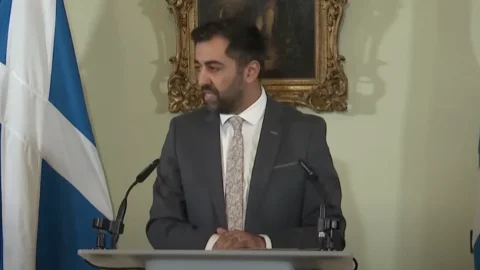Stop transcripts of wiretaps not relevant to investigations. Only "essential passages" and when "necessary" will end up in the pre-trial detention orders. In the penal code xi there will be a new crime, the "dissemination of footage and recordings of fraudulent communications", but journalists will be able to access the magistrate's orders once the parties have had a copy of them. These are the main points of the new law on wiretapping passed today by the Council of Ministers. The provision comes through a legislative decree, after the delegation to the government contained in the reform of the criminal trial launched last summer. The entry into force is foreseen six months after the publication of the text in the Official Gazette, foreseen for January. Only one rule, the one on the right of journalists to have a copy of the pre-trial detention order once it has been made known to the parties, will be effective in a year.
“We have a country that uses wiretapping to combat crime – commented the Minister of Justice, Andrea Orlando – and not to fuel gossip or destroy someone's reputation. The provision, without restricting, but rather authorizing to intercept in an easier way, imposes a series of constraints and prohibitions that prevent them from being used as a tool for disseminating improper information. We think of ordinances that are no longer today's copy-paste, as often happens. If this happens, it seems to me reasonable that they could be published".
Here, in detail, the content of the new law on wiretapping.
STOP TRANSCRIBING IRRELEVANT INTERCEPTIONS
The transcription, "even summary", of "communications or conversations irrelevant to the purposes of the investigations, both for the object and for the subjects involved" will be prohibited. In the report of the operations it will be necessary to indicate only the date, time and device on which the recording took place.
THE PM WILL MANAGE THE ARCHIVE OF INTERCEPTIONS
The minutes and recordings will be kept by the public prosecutor in an archive. Also the prosecutor, within 5 days of the conclusion of the interceptions, will file all the documents, forming a list of relevant conversations for the purposes of evidence. If there is a risk of "serious damage to the investigation", the investigating magistrate may authorize the prosecutor to deposit the material beyond the 5-day deadline, but never beyond the closure of the investigation.
Thus we arrive at the most important step: the reports and recordings that the prosecutor decides to acquire in the crime report file will not be covered by secrecy. The non-acquired material, on the other hand, will be kept in the prosecutor's archive and it will be possible to request its destruction.
ONLY THE ESSENTIAL SONGS IN THE ACTS
To protect confidentiality, prosecutors and judges, in requests and orders for precautionary measures, will report "where necessary" only the "essential excerpts" of the interceptions: a rule, this, which must also inspire the "investigative police reports".
“FRAUDULENT DISSEMINATION OF RECORDINGS”, A NEW OFFENSE
The new crime of "fraudulent dissemination of wiretapping" enters the penal code, punishable on complaint. The penalty of imprisonment of up to 4 years is envisaged for "anyone who, in order to cause damage to the reputation or image of others, disseminates by any means fraudulent audio or video footage of private meetings or recordings, albeit fraudulent, of conversations , also by telephone or telematics, carried out confidentially in his presence or in which he participates in any case".
The crime is not punishable if the dissemination of the footage or recordings is consequent to their use in an administrative or judicial proceeding or for the exercise of the right of defense or the right to report.
PROTECTED RIGHT OF DEFENSE
Lawyers will be able to obtain a copy of the documents deemed useful for the proceeding, but only after being examined by the investigating judge. The time available for defenders to consult the interception reports has been increased without extracting a copy. From the 5 days originally envisaged, it goes to 10, but the term can be extended in more complex cases.
Conversations between the lawyer and his client, in the event of any interception, must not be included in the listening journals either.
JOURNALISTS CAN ACCESS THE ORDERS
Journalists will be able to obtain a copy of the magistrate's orders once they have been disclosed to the parties. This rule, foresees the reform, will enter into force in a year.
MORE RULES FOR THE USE OF SPY VIRUSES
The so-called "computer catchers", i.e. spy viruses on smartphones and tablets, can only be used for wiretapping at home only if organized crime or terrorism crimes are being investigated. Otherwise use of the Trojan in the home is limited to cases where there is criminal activity going on.
HEARING EXCERPT ONLY AS EXTREMA RATIO
As for the hearing-excerpt, the judge in private (without the intervention of the prosecutor and the defenders) will decide on the acquisition of the interceptions indicated by the parties and may also order the excerpt of the recordings and minutes whose use is prohibited . On the other hand, when it is "necessary", the judge's decision will be taken after a hearing in which prosecutors and lawyers will have to participate.
AGAINST THE PA
The procedures for listening in on conversations in the event of serious crimes by public officials against the public administration are simplified. But with two conditions: there must be serious indications of a crime and the interceptions must be necessary to proceed with the investigation.





